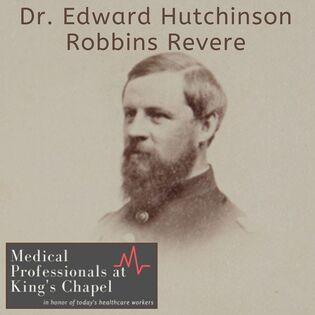 The latest post in the "Medical Professionals at King's Chapel series features Dr. Edward Hutchinson Robbins Revere. A grandson of famed patriot Paul Revere, Dr. Edward H.R. Revere lost his life during the American Civil War at the Battle of Antietam. You can read the full post to learn more about Revere's life by reading more after the break or visiting our Facebook and Instagram pages.
0 Comments
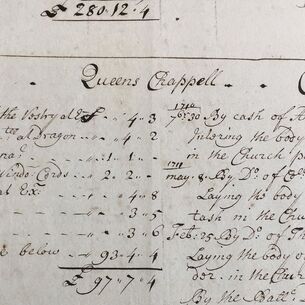 Throughout Women’s History Month, we have been exploring the theme of “Queen’s Chapel” in sharing stories of notable women in King’s Chapel’s history. This page of church expenses, titled “Queens Chapell” was written during the reign of Queen Anne, when this was the official name of the church! Of particular interest on this page is several records relating to burials beneath King’s Chapel prior to the construction of the existing crypt. It is from assorted records like this that researchers at King’s Chapel are able to learn more details about life (and death) at the church outside of the official meeting minutes. Click on the social media icons below to view the post in Facebook and Instagram. 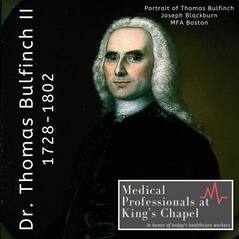 The latest installment in our "Medical Professionals at King's Chapel" social media features Dr. Thomas Bulfinch, an influential church member, lay leader, and accomplished doctor. In this post, read more about about Bulfinch's contributions to the medical field, his noteworthy career, and his role in King's Chapels transition from an Anglican to a Unitarian church. To read the full post, click on the social media icons below!  The History Program's latest social media post in the "Queen's Chapel: Women's History Month" series, featuring notable women throughout the church's 334-year history, was posted on March 25. This post features the story of Dorothea Foote Merriman, who helped transform King's Chapel's membership and pew ownership system 100 years ago. Click on the social media icons below to read the full post. The King's Chapel History Program's annual Women's History Month programming, which includes special guided tours and interpretive booklets, was cut short by our need to close the historic site temporarily to support the health of our staff, visitors, and community. Despite the current History Program closure, we are making our Queen's Chapel interpretation, exploring three centuries of women at King's Chapel, available online until the end of March in the form of an online exhibit.
Click on the image below to visit the Queen's Chapel online exhibit page. 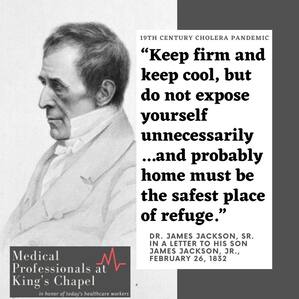 As the King's Chapel History Program continues to work remotely during the COVID-19 pandemic, please visit our social media to read the latest post in our "Medical Professionals at King's Chapel" series. Today's post, researched and written by Program Assistant Jennifer Roesch, focuses on the medical career and legacy of church member Dr. James Jackson, a founder of Massachusetts General Hospital. Be sure to check back for future social media updates and new blog posts to dig deeper into King's Chapel history while the building is physically closed. Click on the social media logos below to view each post! By William StilwellHistoric Site Educator  Each year in Boston, March 17 not only marks St. Patrick’s Day, but also Evacuation Day: the anniversary of the 1776 day when British troops evacuated Boston, marking the end of the Siege of Boston during the American Revolution. Historic Site Educator William Stilwell explores the impact of Evacuation Day on King’s Chapel as a faith community and how its ministers reflected on that period in the church’s history. “Continue...thy favour to our sovereign lord King George, and all that are employed under him...Let no unhappy divisions disquiet his reign, or interrupt the internal harmony of his government.” 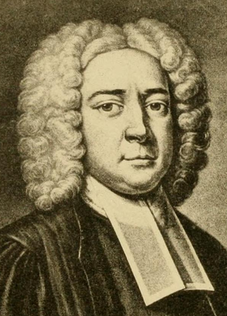 The Reverend Henry Caner The Reverend Henry Caner The Reverend Henry Caner spoke these words as part of a short prayer before his sermon, “The Great Blessing of Stable Times”, on August 11, 1763 at King’s Chapel to celebrate the end of the French and Indian War. Despite his optimistic words, thirteen years later in March of 1776 he would flee Boston without much more than the clothes on his back, leaving behind his congregation of nearly thirty years, never to return. As the King’s troops evacuated Boston, Caner and almost every other civilian loyal to the crown, including some from his own congregation, faced the gut-wrenching decision to disrupt their lives and abandon their homes as the Continental Army besieged Boston. |
King's Chapel History ProgramDive deeper into King's Chapel's 337 year history on the History Program blog. Archives
July 2023
Categories
All
|









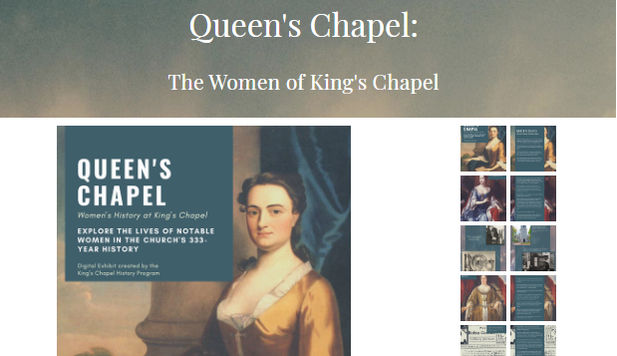



 RSS Feed
RSS Feed